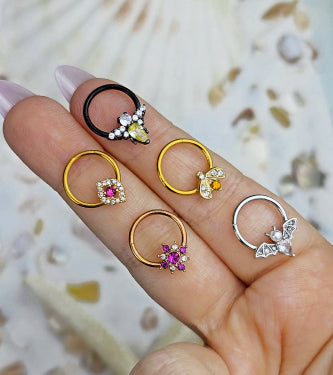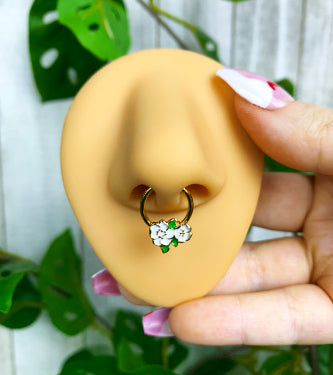The Hamsa
The hamsa depicts the open right hand, a symbol of protection across many cultures. A version of this emblem is present in nearly every major world religion, though sometimes operating under a different name. Hamsa (or Khamsa) is an Arabic word that refers quite literally to the number five. The most common use for an amulet or image of the hamsa is to guard against evil, particularly the evil eye.
The Pentacle
This simple star within a circle is connected to various types of Paganism and Earth-worshipping religions, and is most often associated with wholeness, unity, and light. Some see the symbol as a representation of man’s harmony with nature, equating each of the four lower points to the elements (earth, air, fire, water) and the fifth upward point to divinity, or the sanctity of spirit. Many call the pentacle a pentagram interchangeably, the main generally acknowledged difference being that pentagrams may point in any direction, whilst pentacles only point upward.
The Aum
The aum, ohm, om, or omkara, is a symbol primarily used in Hinduism and other Eastern religions as an aid to meditation. The three syllables that come together to form the aum (A, U, and Ma) dictate the amount of time it takes to read the symbol aloud. The various regions of the aum are representative of the states of human consciousness, and although the symbol is written many ways in many different languages, the widely recognized Sanskrit version has come to be associated with modern spiritualism and yoga as well.
The All-seeing Eye
This symbol has meant many things to different cultural groups, but most commonly observed are the eye’s Egyptian, Hebrew, and Masonic connotations. The Egyptians associated the eye with the duality of nature, and presented it as the eye of Horus, an emblem of the path to enlightenment, composed of six parts. The Hebrew, and later Christian version, is more equated with the watchful eye of god. A great eye that never closes, and sees and knows all things. The free masons and associated Illuminati sects have often been rumored to ascribe an ultimate, ancient knowledge to the symbol, placing the eye sometimes above a great pyramid, or within a crescent of light.







